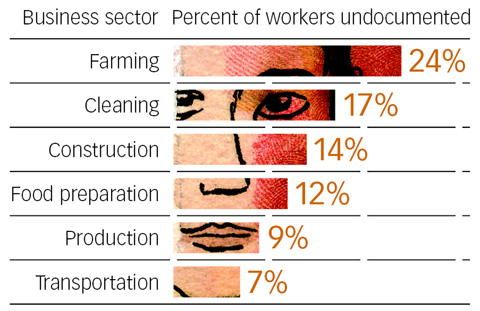Critics of Basic Pilot say it’s riddled with computer and data errors, and isn’t scaled for a national rollout. Still, the federal government wants all 8 million businesses in the U.S. registered with this program within five years. In the meantime, the government is promising a much harder investigative and prosecutorial line against companies that hire undocumented workers.
Dealers seem confident about being able to check their own employees’ backgrounds. “We watch I-9s very closely,” says the vice president of human resources for one of the largest pro dealer chains in the Southwest, who spoke on the condition of anonymity. (Form I-9s verify employee eligibility and identity documents.) The dealer, he says, uses its own employees for installation projects, and “we only hire people who have the legal right to work here.” And on those occasions where workers have used fake IDs to get hired, “when we found this out, we terminated them on the spot.”
Rome, Ga.–based Wheeler’s Building Supply has about 200 Hispanics working in its four manufacturing plants, “and we make sure that everyone has an I-9 and has shown us at least two forms of ID,” says Wheeler’s president Jim Manis. In fact, Manis believes that his company has become something of a “destination employer” for Hispanics in and around Atlanta. Some of its plant managers are bilingual, and it has a person in its HR department who helps Hispanic hires get through the required paperwork.
However, Wheeler’s and many other pro dealers that offer installation services are, in essence, taking subs at their word that their labor is legal. As government watchdogs overseeing workplace enforcement add some bite to their bark, pro dealers might need to get more involved in doing background checks just to protect themselves against even indirect implication. Butts thinks that large dealers in particular have no choice but to be proactive in verifying the legality of installers because “the responsibility will fall squarely on their shoulders, and they are so big that they can’t take the chance” of having undocumented workers associated—in fact or even in customers’ minds—with their businesses. —John Caulfield is a contributing editor for PROSALES.
Undocumented Workers by Industry About 12 percent of America’s population is foreign-born, and 30 percent of them are said to be in the country illegally. Undocumented workers seem to gravitate into those industries—including construction—that are relatively low-paying and are in constant need of labor.



